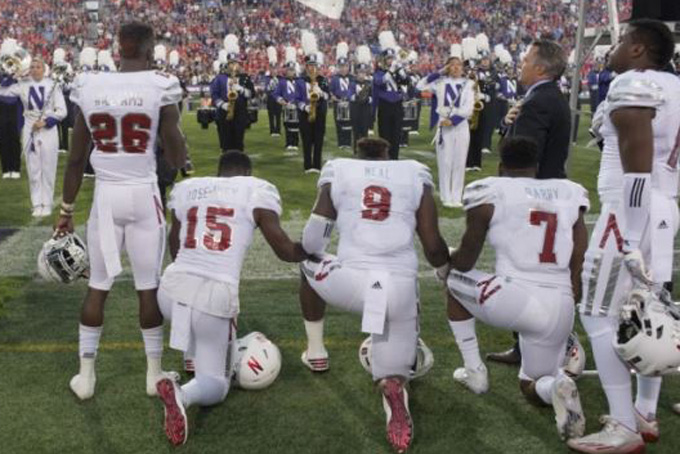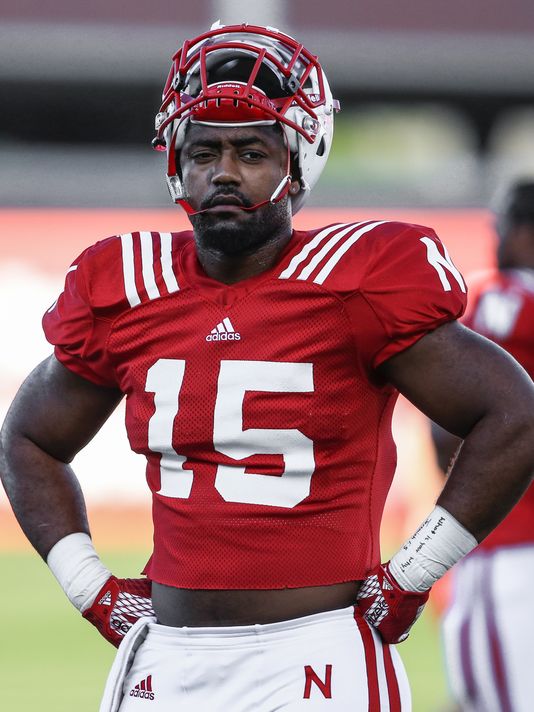
Since there is major opposition to Black student athletes using their first amendment right to participate in non-violent protests bringing attention to injustices that continue to make headlines, the time has come for elite Black athletes to reconsider playing at HBCUs.
There is a paradox facing predominantly White colleges in these changing social times regarding Black athletes. Administrators are not comfortable with players taking a knee or raising their fists to in solidarity with the millennial civil rights movement. Coaches, meanwhile, who must recruit these players, are reluctant to quell their athlete’s expressions fearing it may hurt their chances of landing highly regarded prospects in the future.
Fans and alumni these days are another matter.

These patriotic hypocrites love players scoring touchdowns and making big plays on the field. However, the cheers quickly turn to boos and hateful tweets once they choose to calmly bring more attention to racial injustice.
As we saw in Nebraska last week when Black players chose to take a knee during the national anthem they are being met with the type of contempt that civil rights pioneers faced when they asked for inclusion 50 years ago. Senior linebacker Michael Rose-Ivey, and two redshirt freshman teammates — linebacker Mohamed Barry and defensive end DaiShon Neal — kneeled and prayed in Evanston, Illinois during the national anthem before the game at Northwestern on September 24. Evanston is a suburb of Chicago where 18-year old unarmed Paul Neal was fatally shot by police officers who claimed he had a gun July 28.
The backlash in social media from fans in “Husker Nation” serves as a wake-up call for top Black student-athletes weighing college scholarship offers. Rose-Ivey said he received death threats and was repeatedly called the “N-word” in Tweets that were mainly from supporters of the Nebraska program. He also cited those in the Twitter universe who said he and his teammates should be “lynched and hung before the next game”.
Those attacks against Rose-Ivey, Barry, and Neal also came from the Nebraska Board of Regents as well. Regent Hal Daub dismissed their freedom of speech in an interview with the Lincoln Journal Star saying, “It’s a free country. They don’t have to play football for the university either. “They know better, and they had better be kicked off the team”.
Stand down and play ball is the message sent by Nebraska and most of the major college programs around the country. It is a blatant slap in the face to many Black athletes who represent the victims and communities impacted by the epidemic of fatal interactions with law enforcement around the country.
HBCUs have always been a second chance option for elite student-athletes post integration but the time for them to come home is now. It is clear that the climate at major schools is no longer healthy for the overall development of the Black student-athlete. Schools would prefer their athletes stay quiet despite media images that force them to speak out while making baskets and scoring touchdowns while on a scholarship that can be pulled anytime.
HBCU student-athletes won’t get the same media exposure but the players won’t face vitriol while standing for social justice. Playing intercollegiate athletics shouldn’t mean sacrificing what you stand for to play on TV every week.
Mark F. Gray covers sports for the AFRO.
https://afro.com/nebraska-shows-why-elite-high-school-athletes-should-reconsider-hbcus/